Hey, do you know there’s a whole day dedicated to celebrating jerk chicken? Yep, that’s right—National Jerk Chicken Day! This is the day when we pay homage to that spicy, smoky, and utterly irresistible delight that has us all licking our fingers and asking for more.
Whether you’re a seasoned jerk aficionado or just curious to dive into this flavorful adventure, there’s no better time to explore the fiery depths of jerk cuisine. So, why not mark your calendar, gather some friends, and fire up the grill? Let’s make this National Jerk Chicken Day one for the books. Ready to spice up your life? Let’s get cooking!
What is National jerk Day?
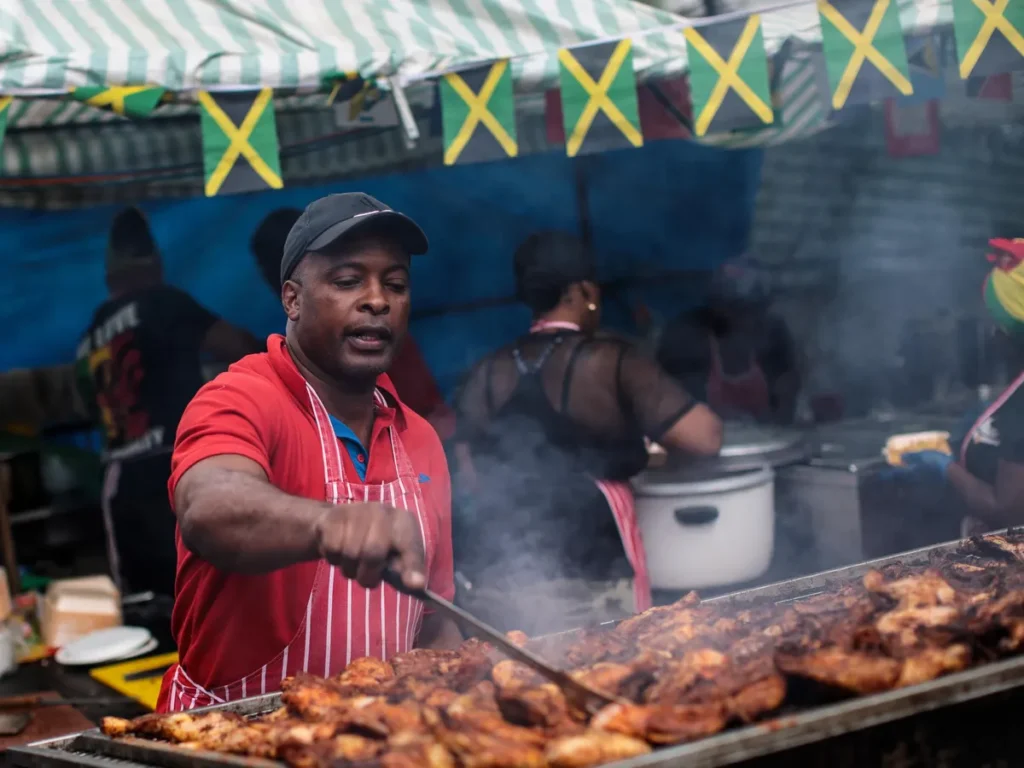
National Jerk Day isn’t officially on the calendar, but if it were, it would be a day devoted to celebrating the rich, spicy flavors of jerk seasoning, a staple in Caribbean cuisine, particularly in Jamaica.
Jerk cooking involves marinating meat—usually chicken, pork, or beef—in a vibrant blend of allspice, Scotch bonnet peppers, cloves, cinnamon, scallions, nutmeg, thyme, and garlic. It’s then slowly smoked over pimento wood for that signature spicy-smoky taste.
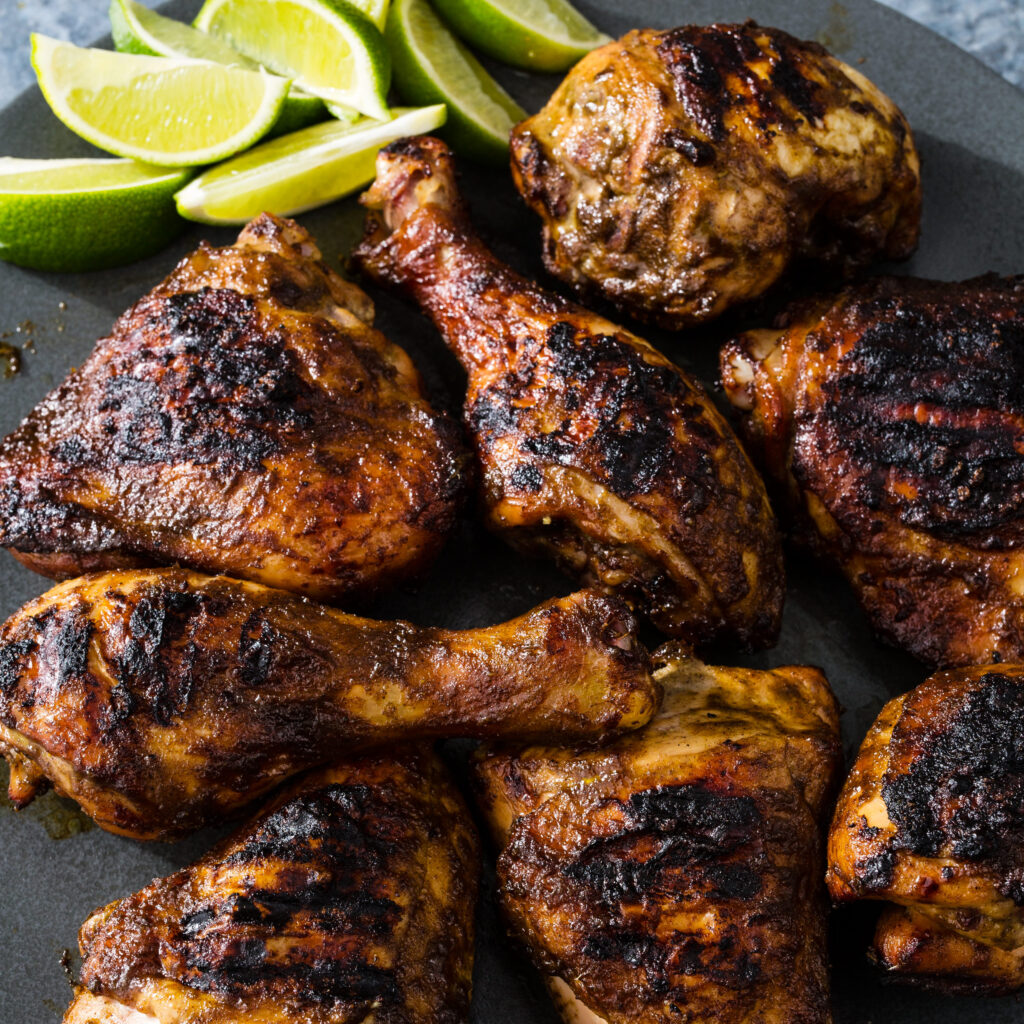
If such a day were to exist, it would be the perfect excuse to whip up some jerk chicken, share it with friends, and maybe even enjoy some reggae music to set the mood.
National Jerk Chicken Day: Why is jerk chicken so important to Jamaican culture?
Jerk chicken isn’t just a delicious meal; it’s a vital part of Jamaican culture with deep historical roots. The origins of jerk cooking can be traced back to the Maroons, escaped African slaves who intermingled with the indigenous Taíno people on the island. They developed the jerk method as a way to cook meat that would be flavorful, preserve well, and could be prepared away from the prying eyes of their colonial pursuers, using the spices and techniques that have now become synonymous with Jamaican jerk cuisine.
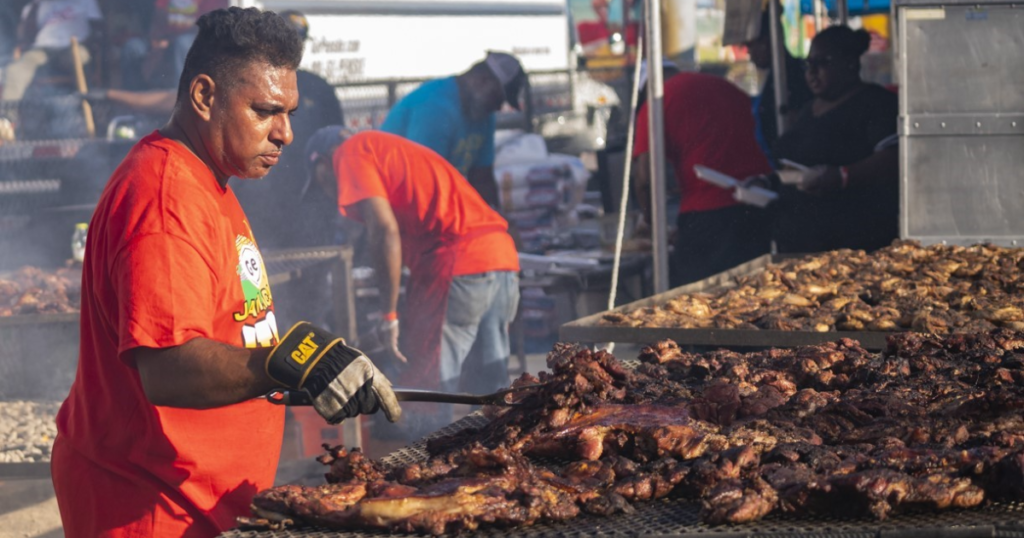
Over the years, jerk chicken has become a symbol of Jamaican identity and culinary ingenuity. It represents a blend of various cultural influences that have shaped Jamaica, including African, indigenous, Spanish, and British.
The distinct flavor profile—spicy, smoky, and aromatic—encapsulates the island’s bold spirit.
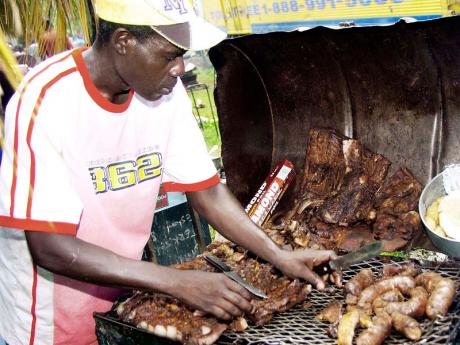
Jerk chicken is celebrated both locally and internationally, serving as a culinary ambassador that introduces Jamaican culture to the world. Plus, it’s a festival and street food favorite, bringing people together over shared plates and lively conversations. In a way, it’s not just about eating; it’s about experiencing a piece of Jamaica.
Why is it called jerk chicken?
The term “jerk” refers to both the spice blend and the cooking method used to prepare the iconic Jamaican dish. There are a couple of theories about how the name came to be:
The Process:
Some say the term “jerk” comes from the Spanish word “charqui,” which means dried strips of meat (similar to what we know as jerky today). When the Spanish invaded Jamaica, they brought this technique with them. Over time, the local adaptation of charqui may have evolved into “jerk,” describing the spiced, smoked meat prepared by the Maroons.
The Action:
Another theory suggests that the name derives from the action of “jerking,” which refers to poking the meat with holes so that spices can be more thoroughly rubbed into and absorbed by the meat, enhancing its flavor.
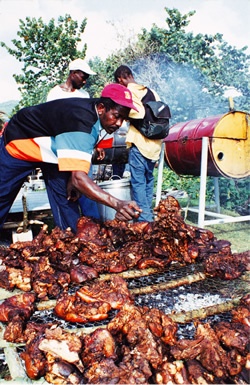
Whatever its origins, “jerk” today is synonymous with the aromatic, fiery spice mix and the slow, smoky cooking technique that gives jerk chicken its unique and beloved flavor.
7 interesting facts about jerk chicken
Jerk chicken is not just a delicious dish—it’s a cultural icon with a lot of cool history and quirks. Here are seven interesting facts about jerk chicken that might spice up your knowledge:
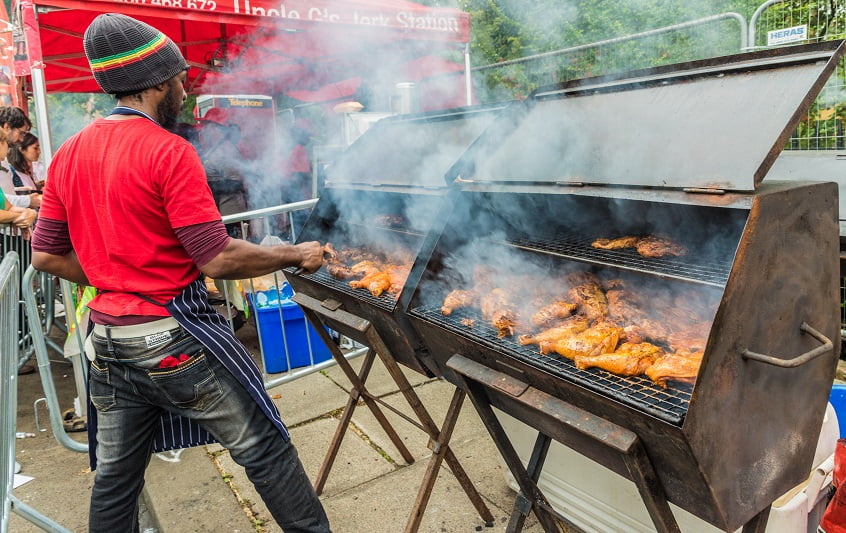
Historical Roots:
Jerk cooking originated with the Maroons, escaped African slaves in Jamaica, who adapted indigenous Taíno techniques to create this unique cooking style. It was initially a way to cook meat secretly and efficiently in the wild.
Unique Wood:
Traditionally, jerk chicken is smoked over pimento wood, which comes from the allspice tree. The wood adds a distinctively sweet and spicy aroma that is integral to the authentic jerk flavor.
Spice Blend Secrets:
The jerk spice blend must include allspice (from the pimento tree) and Scotch bonnet peppers. Other ingredients can vary but typically include cloves, cinnamon, scallions, nutmeg, thyme, and garlic.
Global Influence:
While jerk cooking is quintessentially Jamaican, it has influenced international cuisines, especially in places with large Jamaican diaspora communities like the UK, Canada, and the USA.
Festival Food:
Jerk chicken is a staple at Jamaican and Caribbean festivals around the world, celebrated for its intense flavor and communal appeal.
Health Aspects:
The spices used in jerk seasoning, like allspice and Scotch bonnet peppers, are not just tasty—they’re also packed with antioxidants and have anti-inflammatory properties.
Culinary Versatility:
Though chicken is the most popular meat, the jerk method can be applied to pork, beef, lamb, goat, fish, and even vegetables, making it a versatile technique for any type of cookout.
Conclusion
As we wrap up our fiery journey through the world of jerk chicken, it’s clear that this dish is much more than just a meal—it’s a celebration of Jamaica’s enduring spirit and rich cultural tapestry. Jerk chicken connects us to the island’s history, from the Maroons’ innovative cooking methods to the global spread of Jamaican culture through its diaspora. Every bite of this spicy, smoky delight is a taste of Jamaica’s soul, full of the warmth and vibrancy of its people.
Whether you’re a seasoned jerk enthusiast or a newcomer eager to explore, there’s no denying the universal appeal of this iconic dish. So, next time you savor the spicy kick of jerk chicken, remember it’s not just food; it’s a piece of culinary heritage that dances on the palate and sings the stories of Jamaica. Let’s keep this delicious tradition alive and sizzling!
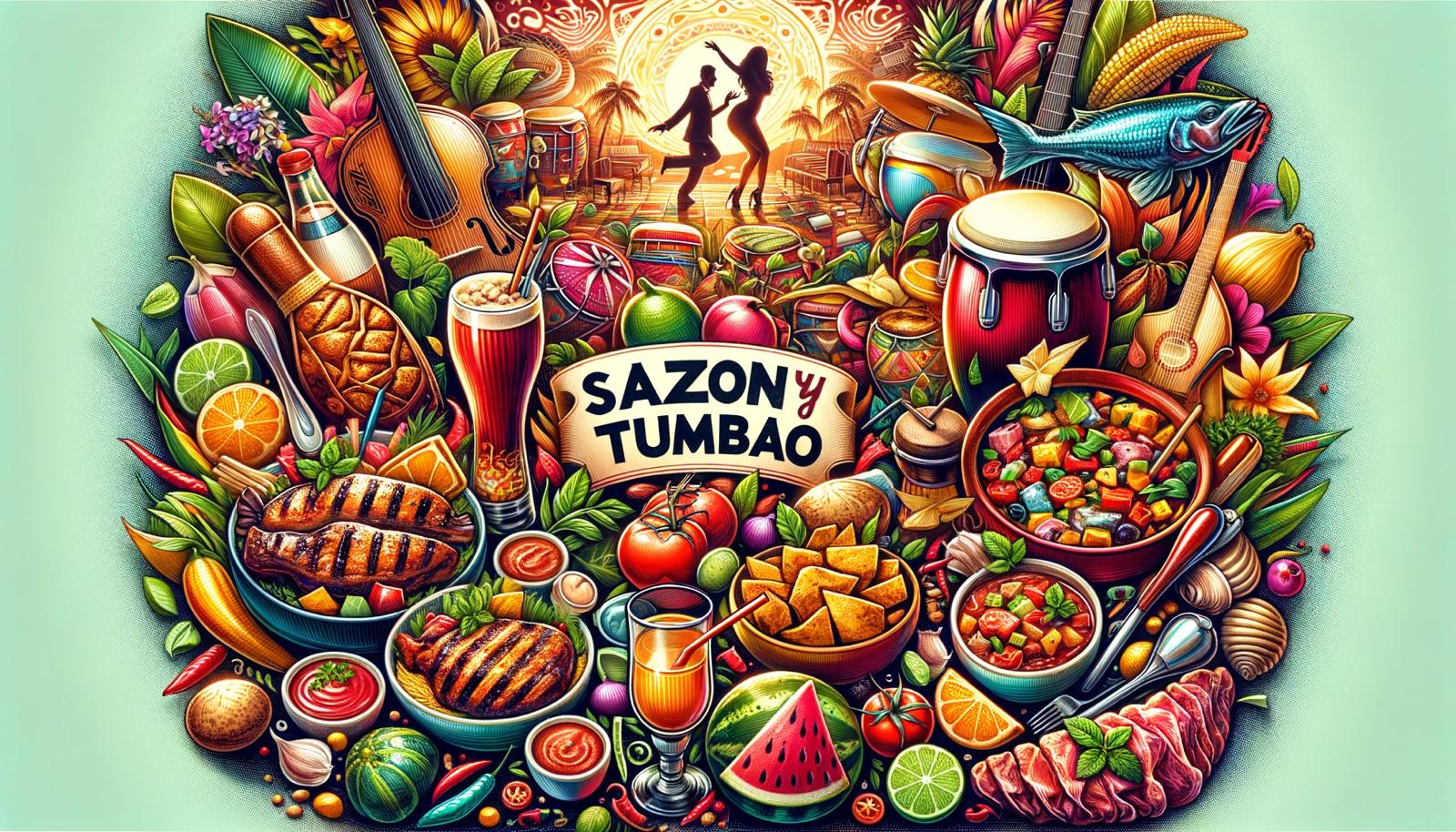

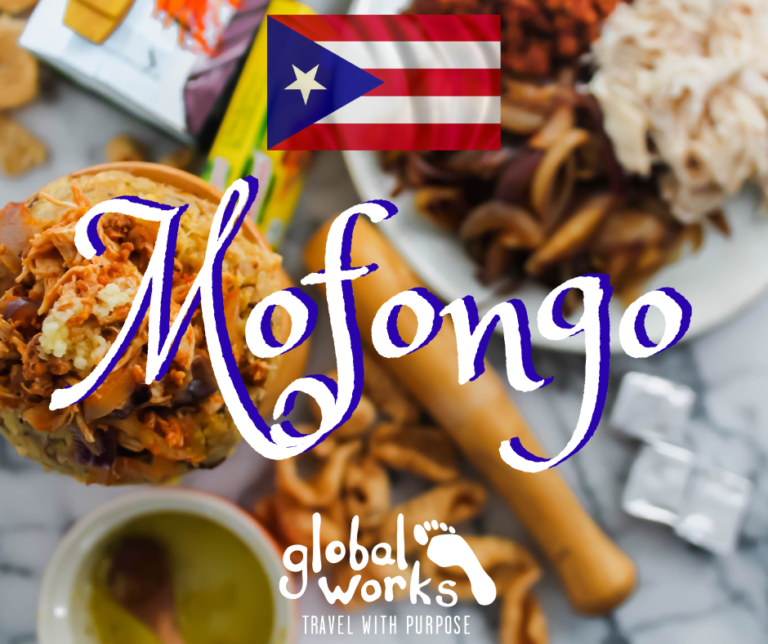


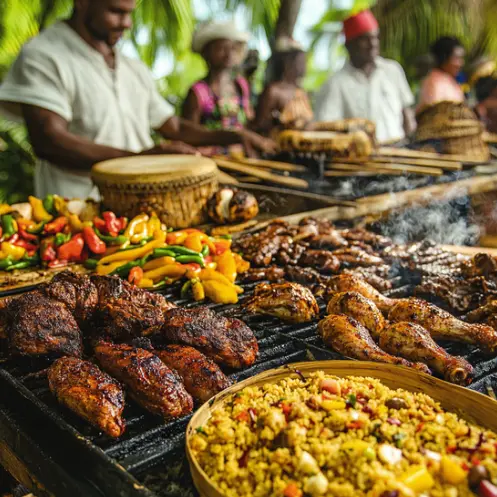
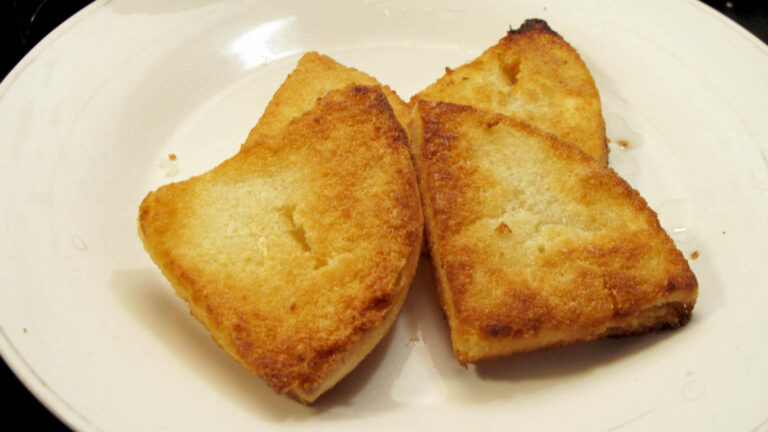
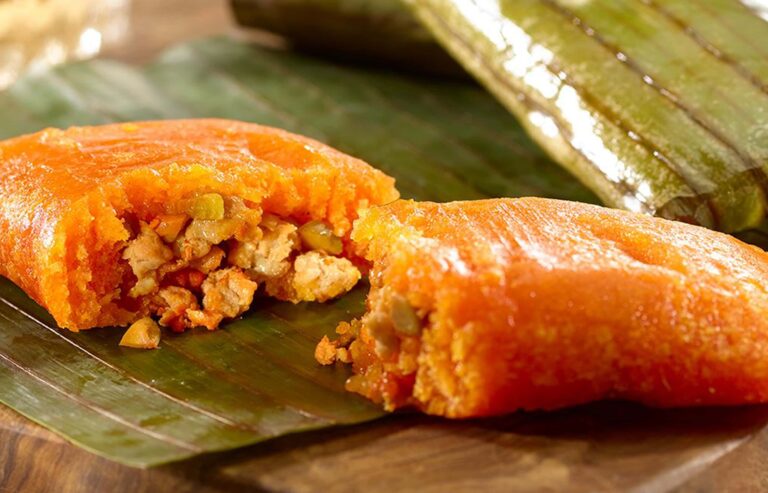
One Comment